Many companies make the mistake of thinking that data is safe. This, however, couldn’t be further from the truth. In this blog post, we’ll discuss 5 cybersecurity myths that are compromising your data and how to avoid these mistakes in the future.
As the importance of cybersecurity has increased, we have become more aware of it.
The growing number of information security breaches and data theft has been dubbed the most significant danger to companies today. Cybersecurity issues frequently result from a lack of cybersecurity awareness.
According to the Cyberthreat Defense Report, a lack of cybersecurity awareness was identified as the biggest problem for an organization’s cyber defenses.
Many people are unaware of the most common cybersecurity threats and how to avoid them. As a result, they make mistakes that leave their organization vulnerable to attack. In this blog post, we will discuss five of the most common myths about cybersecurity and how to overcome them.
Cybersecurity isn’t my responsibility
IT security is for everyone. You need to work with the IT team, but also make sure you do your own part by keeping your computer and other stuff safe.
Your employees are the front line of your defense and, as such, they represent the most vulnerable point of your organization.
They are the people hackers are targeting with phishing campaigns because they’re banking on a lack of security knowledge.
Make sure you have comprehensive cybersecurity training and policies in place, and that your employees know how to identify a scam email or website.
Your data is only as safe as your weakest link. Make sure you are doing everything possible to protect yourself and your organization.
If people don’t do basic cybersecurity hygiene, there can be serious consequences. They may jeopardize your company’s security if they don’t exercise caution when clicking links in emails or downloading software.
Phishing attacks are increasing in frequency and sophistication, so it’s more important than ever to be aware of the dangers they pose.
Make sure you have comprehensive cybersecurity training and policies in place, and that your employees know how to identify a scam email or website.
Your data is only as safe as your weakest link. Make sure you are doing everything possible to protect yourself and your organization.
This myth can have serious consequences if your people don’t practice basic cybersecurity hygiene. If they don’t take care when clicking links in emails or downloading software, they could compromise your business’ security.
Your cybersecurity team should prioritize policies and procedures designed to ensure your people are practicing cybersecurity best practices. Cybersecurity measures like these can help you secure data, protect yourself against breaches or cyberattacks, and avoid regulatory penalties incurred as a result of human error.
Employees need to know why cybersecurity is important. It will help them do a good job. Training will also teach them how to identify hazards and modify their behavior in order to improve their quality of life.
The biggest threat to cybersecurity is often the company’s own employees who give away sensitive information through simple mistakes like using weak passwords, not creating backups for important files, or ignoring phishing emails.
So educate them! Most cybersecurity incidents could be prevented by more robust employee training initiatives that teach staff how to spot security threats and change their behavior accordingly. “Education” is key here – it’s necessary for all levels of employment within an organization (or government agency) in order.
There are a lot of cybersecurity myths out there that just don’t hold water. So let’s take a look at five key cybersecurity threats and clear up some common misconceptions about them once and for all.
In today’s world, cybersecurity is now everyone’s responsibility because it can have serious consequences if left to collect dust in the corner as an afterthought.
Cybersecurity must be addressed from multiple angles: government, business leaders, individuals – you name it!
In this blog post we will go over each angle separately – one myth per section – but keep in mind that cybersecurity simply cannot succeed without participation from every level of society. We need your help too!
Hackers don’t target small businesses
Is it true, as many people believe, that only large businesses like Yahoo, Uber, and Marriott are targeted by hackers?
Isn’t it the case that most data breaches involve small businesses?
Wrong.
A study by the cybersecurity firm Symantec found that 43 percent of cyberattacks in 2021 targeted small businesses.
This myth is wrong because of the news on TV and because hackers can get more money than usual. However, the Federation of Small Businesses (FSB) claims that small businesses in the United Kingdom are subjected to over 10,000 cyber-attacks every day.
This report highlights weak security procedures of small businesses, such as not installing updates and not using security software.
Hackers use sophisticated methods
The general public has the misconception that hackers use incredibly sophisticated and unknown methods to break into systems. In reality, many hackers simply exploit common vulnerabilities that have been identified and fixed by cybersecurity professionals.
Businesses that fail to keep their software up to date are especially vulnerable to attack. It’s important for businesses of all sizes to be proactive about their cybersecurity posture and not rely on outdated myths about hacker behavior.
[su_row][su_column size=”1/2″ center=”no” class=””]
Cybersecurity is expensive
Another common myth is that cybersecurity is too expensive for small businesses to implement. The truth is that there are a variety of cost-effective solutions available, including free security software from providers such as Microsoft and Apple.
Financially, targeting enterprises is more profitable. But the risks are also higher. Cybercriminals know this.
Investment may be greater for larger businesses, the cost of a data breach can be much higher. Larger businesses also have more sensitive data that could be compromised in a cyberattack.
[/su_column] [su_column size=”1/2″ center=”no” class=””]
Hackers only target large businesses
A third cybersecurity myth is that hackers only target large businesses. The truth is that small business are just as vulnerable to attack as their larger counterparts. In fact, hackers often go after smaller businesses because they’re seen as easier targets.
This means that all businesses must take steps to protect themselves from cybersecurity threats. Ignorance or complacency can be costly in today’s digital world.
[/su_column][/su_row]
[su_row][su_column size=”1/2″ center=”no” class=””]
Employees are the biggest security risk
Many business owners believe that employees are the biggest security risk.
A cyber-attack might put a small business out of operation and force it to close, which is why every 19 seconds in the UK, one substantial company is successfully hacked.
Small businesses which have a limited cybersecurity budget should tap into the knowledge of an IT support service, who can advise on the most suitable defenses.
[/su_column] [su_column size=”1/2″ center=”no” class=””]
Hackers don’t target small businesses
Small businesses are often seen as low-hanging fruit by hackers because they may not have the same cybersecurity defenses in place as larger organizations. Hackers know that small businesses are likely to have less sophisticated security measures and staff who are not as well trained in spotting potential threats.
[/su_column][/su_row]
My passwords will keep me safe
There are still two long-held beliefs about passwords. The first is that adding capital letters, numerals, or special characters to your one-word password will make it unbreakable. The second is that password managers make passwords obsolete.
Both of these beliefs are false.
Password crackers know all the tricks of the trade and can easily break even long complex passwords.
And while a password manager will create and store strong passwords for you, it’s still up to you to remember them!
The belief that passwords must be at least 10 characters long has been around for a long time.
This misconception is perpetuated by many business records which demand these criteria.
The real test of password security is the length.
The software can find out any password, no matter how “complex” it is, in a few days.
The longer a password is, the more time it takes to break.
The recommendation is to use a phrase that does not have any special characters. It can be from a book or song.
A related cybersecurity myth is that two-factor authentication provides an added layer of security. This might be true in some cases, but not all situations are created equal.
But making your password strong is only the first step. If the service you are using is hacked, criminals might have access to your password.
That’s why it’s important to use different passwords for different accounts and to enable two-factor authentication whenever possible.
Even if a hacker obtains your password, they won’t be able to access your account without also having physical possession of your device or knowing your unique identifier (such as the last four digits of your).
That’s where two-factor authentication (2FA) and multi-factor authentication (MFA) come in. These methods require you to set up an extra verification step.
For example, after entering your username and password, you might be prompted to enter a code that is texted or emailed to you.
When you log in, you’ll need to enter a security code that is sent to your phone or even accessed via an app.
In addition to their digital existence, this technology also protects your physical life. As a result, even if a hacker obtains access to your password, they will be stopped.
Fact, weak and easily guessed passwords are one of the most common ways hackers gain access to accounts.
In a study by cybersecurity firm Keeper Security, over 70 percent of users had a password that could be hacked in less than two minutes.
A basic anti-virus will be enough to protect my business
McAfee or Avast is not enough to protect your business.
There are now specific tools to fight against ransomware, which you will need.
In fact, according to cybersecurity firm Kaspersky Lab’s research, ransomware attacks have been growing by 250% each quarter since Q12015 and there is no sign of this slowing down.
A synchronized approach to security, whereby your solutions all interact with one another, is generally accepted as the most robust.
This is where cybersecurity service providers such as Norton by Symantec come in.
They provide a set of tools and resources to help protect your business against ransomware, malware, and other cyber-attacks. If you want the best cybersecurity for your devices today, we recommend opting for an integrated approach with their solutions working together so that it’s even.
Your security solutions should cover many things. They should include your computer, your firewall, network connections, and email for example. In addition, making backup copies of your data and having a disaster recovery plan are recommended. These will help to protect you from any problems.
[su_row][su_column size=”1/2″ center=”no” class=””]
- One antivirus is not enough to keep your company safe.
- Antivirus software is all you need to protect your computer from cyber threats.
- You don’t have to worry about ransomware if you have anti-virus software installed on your device.
- Email attachments are the only way
- An anti-virus will not keep you safe from ransomware.
- Most cybersecurity threats come through email attachments, but it is still important to be wary of them even if they are opened on another device first.
[/su_column] [su_column size=”1/2″ center=”no” class=””]
- Cybersecurity threats are constantly evolving and your devices need to be updated regularly to keep up with the latest trends.
- You only have to worry about cybersecurity if you’re using public Wi-Fi networks
- You need a layered security approach that includes many different protections.
- You don’t have to worry about cybersecurity if your devices are up to date with all the latest.
[/su_column][/su_row]
Public Wi-Fi networks can be a goldmine for cybercriminals looking to steal your data.
Your cybersecurity needs to include many different types of protection.
You need a layered security approach that includes anti-virus, firewalls, updates, and more.
Cybersecurity threats are constantly evolving so your devices must be updated regularly.
We only need to protect against hackers
Hackers can hurt your business, but you have to worry about other things.
Hackers are a big problem, but you might need to worry about other things like accidents or people who work for you.
In fact, a study by the Ponemon Institute found that 59% of companies surveyed had experienced at least one data breach in the past two years caused by internal threats.
These can include the intentional or accidental release of confidential information, theft or destruction of data, and sabotage.
One of the most highly-publicized accidental breaches was a Heathrow Airport staff member losing a USB stick with sensitive data on it.
Luckily, the person who found it handed it in rather than using it maliciously.
However, the lost USB stick contained a wealth of information about Heathrow’s security procedures and was found in a pub.
The incident happened back in 2011 but cybersecurity experts now say that things could have been much worse if it had fallen into less trustworthy hands.
In fact, due to this cybersecurity threat alone, you should consider investing as little as $40 in a good-quality USB stick encryption product.
In reality, we also need to protect against data loss through human error.
A misplaced or stolen laptop, for example, can lead to disastrous consequences if the data on it falls into the wrong hands.
In fact, 60% of all cybersecurity breaches are caused by human error, so it’s important to have measures in place to mitigate this risk.
There are a number of ways you can do this, from password protecting your devices to using encryption software.
And don’t forget about training your staff on cybersecurity best practices – after all, they’re often the ones.
The company was fined 120,000 pounds for its data protection “serious” problems. It is easy for employees to email a spreadsheet with sensitive data outside of the company.
Security for your cybersecurity is the biggest issue surrounding data security.
Just because you have cybersecurity, doesn’t mean it will protect your devices against hackers. These are measures that all companies should take to ensure their company has a sound cybersecurity foundation in place.
The same thing can happen if an employee is angry. They might want to steal or share the information. This can be somewhat difficult to prevent.
However, by restricting access to your critical systems and ensuring that fewer people have access to them, you may protect yourself against it.
There are many dangers lurking inside your company that can lead to a data breach.
For example, did you know that unsecured Wi-Fi networks can be easily hacked?
And if an employee brings their own device to work and connects it to the network, malware can quickly spread throughout the entire system.
You also need to be aware of the fact that people often leak sensitive information without realizing it.
For example, when sending an email with confidential information, make sure you password protect the document or use a secure file sharing service. Or consider conducting video meetings instead of having conversations over the phone – this will help keep your conversation private.
For accidental breaches, implement policies that state removable devices must be encrypted. You can also configure your email settings to block certain attachments from being shared outside of your organization.
You also need to be aware of the fact that people often leak sensitive information without realizing it.
For example, when sending an email with confidential information, make sure you password protect the document or use a secure file sharing service. Or consider conducting video meetings instead of having conversations over the phone – this will help keep your conversation private.
Are you or your staff members guilty of believing any of these myths?
If so, it’s time to start taking cybersecurity more seriously!
What is the Top cyber attack?
Some people try to trick you by sending you emails that are pretending to be from someone else.
These are called phishing attacks.
They are the most harmful for small businesses because they can get your private information. They have grown 65% in the last year, and they account for over $12 billion in business losses.
They’ve evolved from a small nuisance to an all-consuming threat that can severely impact your company’s bottom line. According to reports, 90% of all breaches are the result of phishing attacks, and they’re on the increase:
Phishing attacks happen when someone pretends to be a trusted person and then they trick you into clicking on their link or downloading something from them.
They then get your personal information, like account details and passwords.

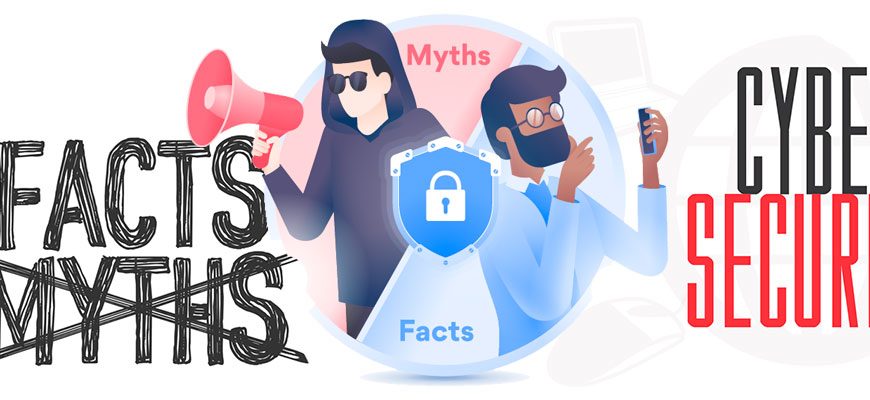

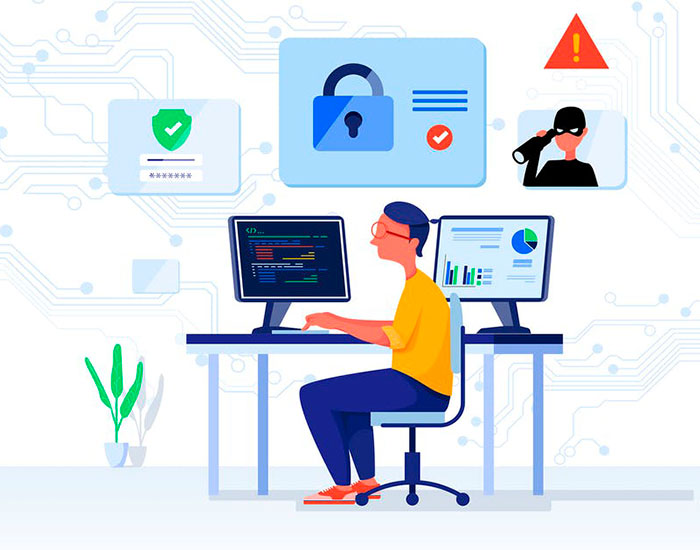
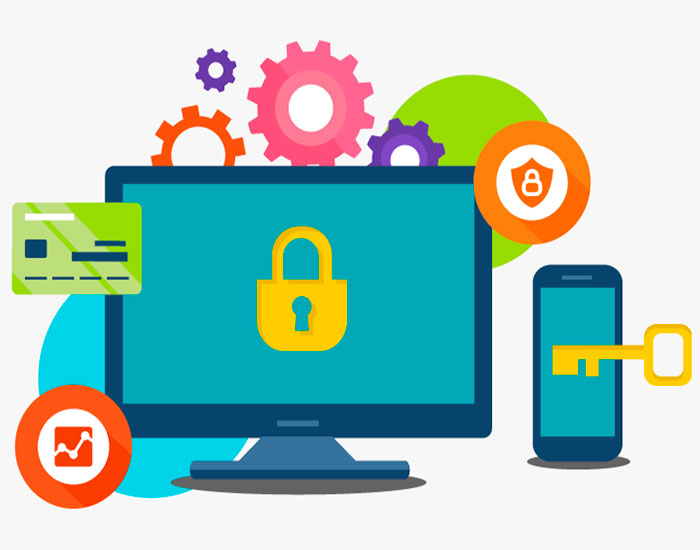
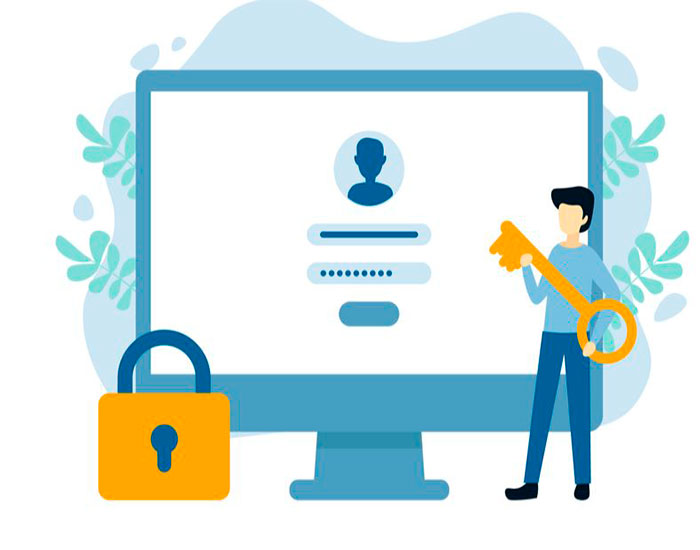
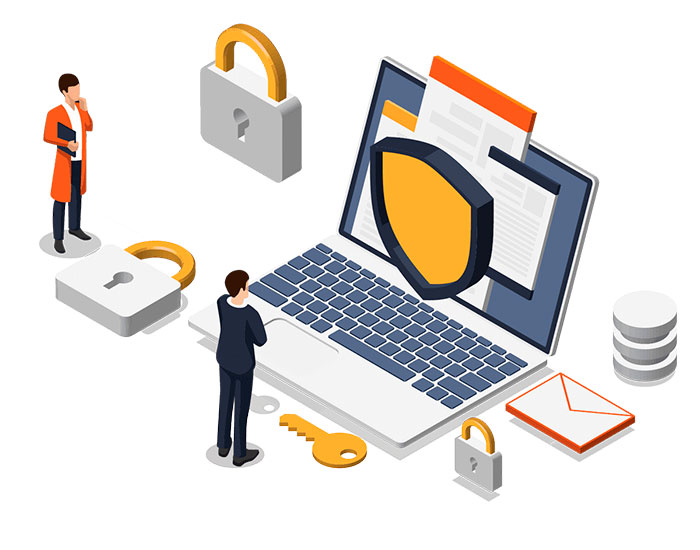
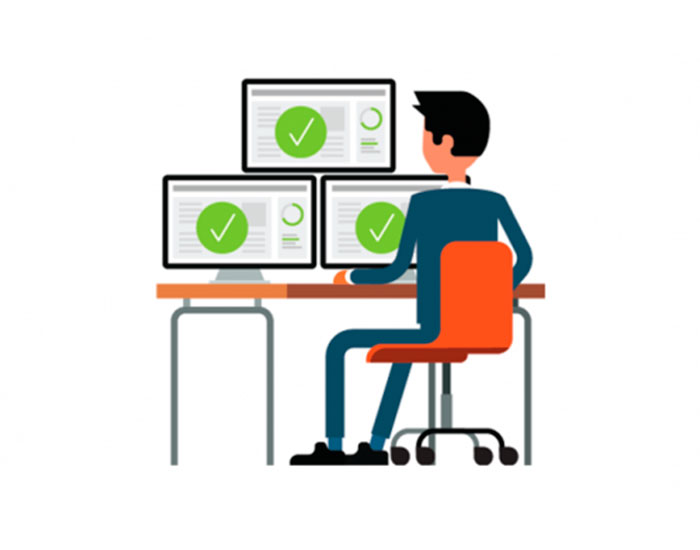
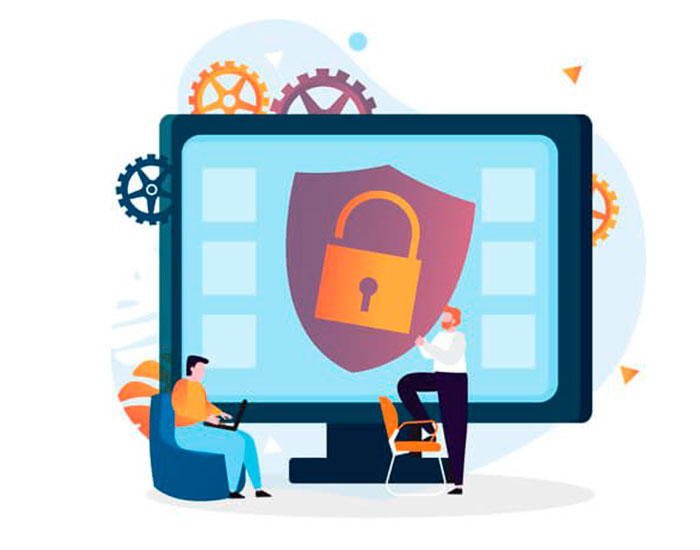

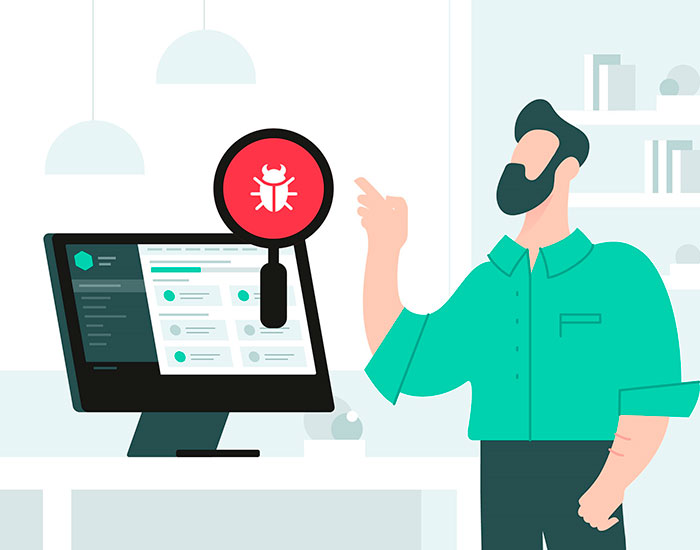
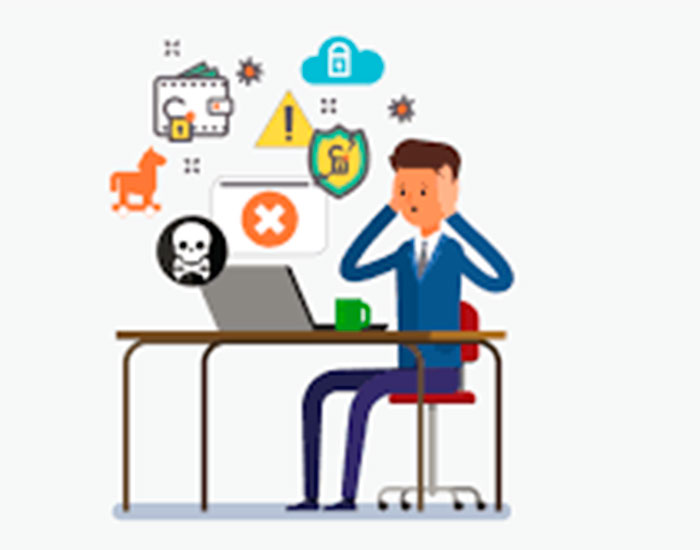



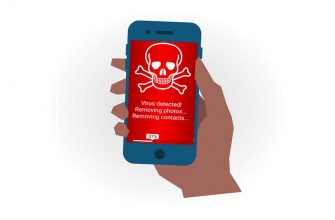
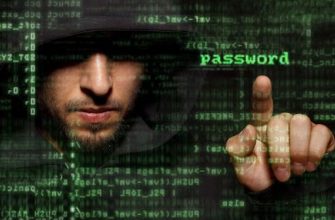
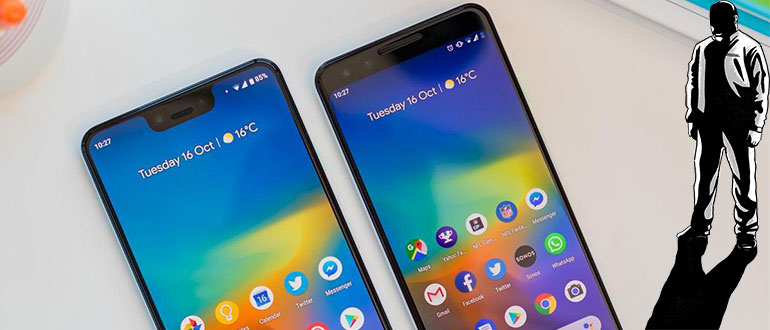
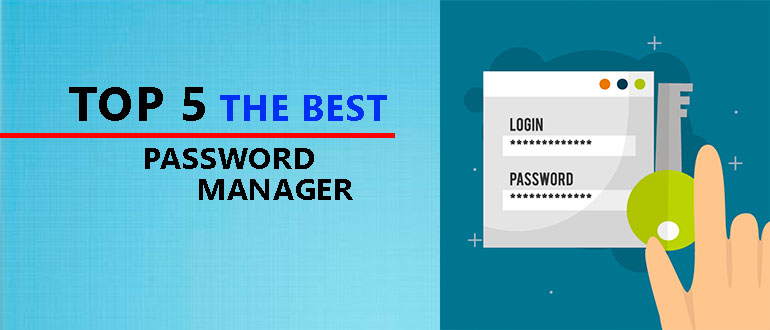

This is such an important topic! Cybersecurity myths can lead to serious vulnerabilities if left unaddressed. I especially resonate with the myth about “strong passwords being enough”—so many people overlook multi-factor authentication, which adds a critical layer of protection. Another myth I often hear is that “only big businesses are targeted,” when in reality, small businesses and individuals are often easier targets. Thanks for shedding light on these misconceptions and helping people stay informed! 🔒